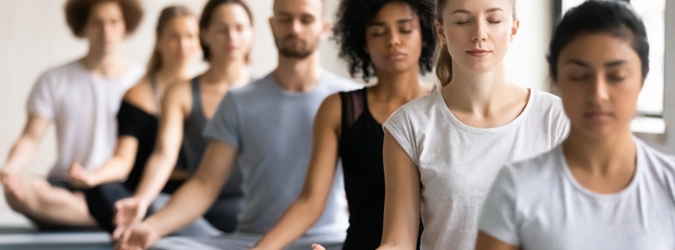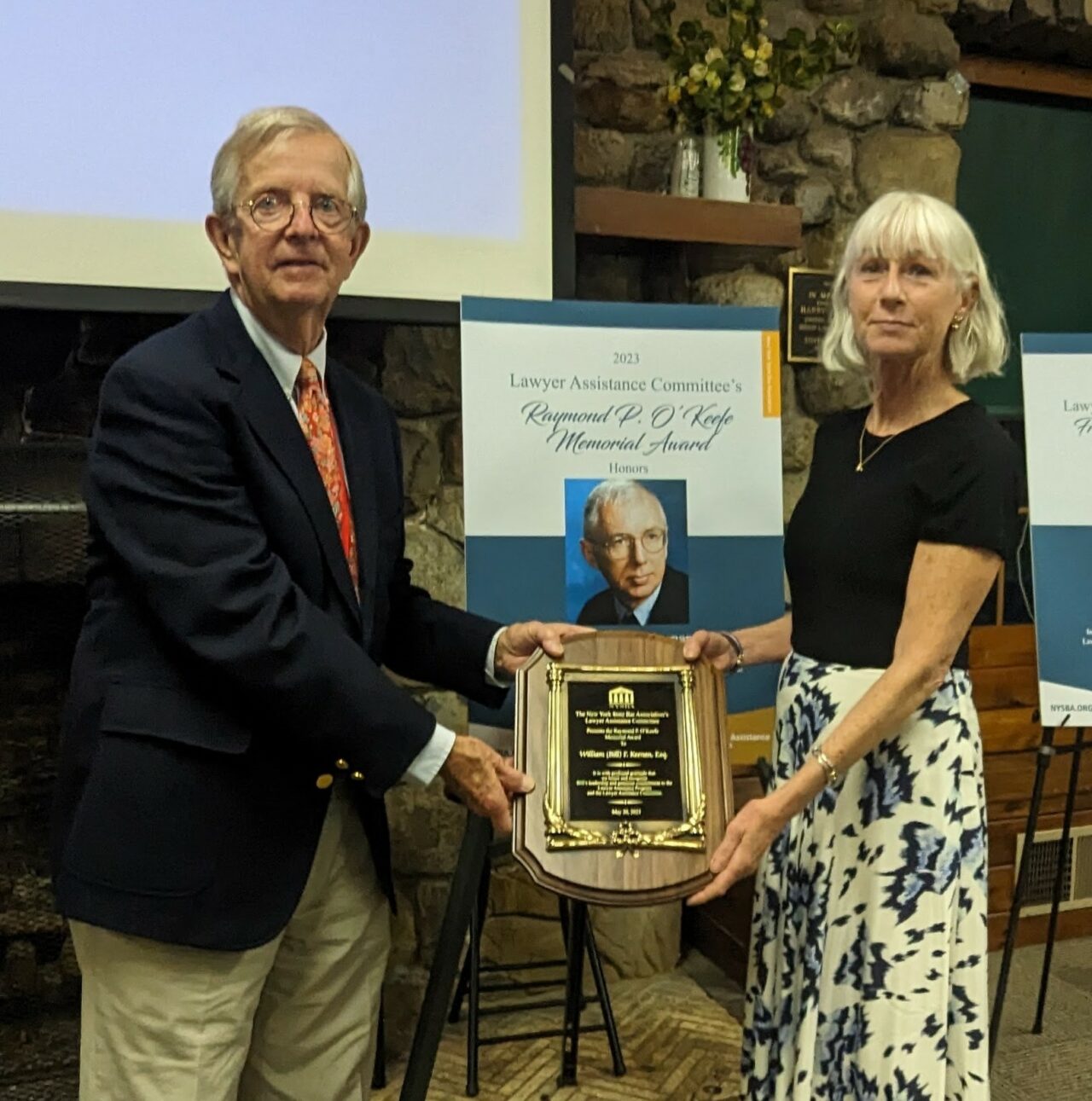Let’s Get Physical: Get Moving for Attorney Well-Being
3.27.2023

New York prides itself on being a sophisticated jurisdiction. Its transactional lawyers structure deals that are cutting edge. Its litigators craft novel arguments that are considered by learned courts. New York law governs contracts throughout the world. Now through the New York State Bar Association (NYSBA), New York offers its legal community a cutting-edge path to physical well-being.
For more than a year, a working group of the Task Force on Attorney Well-Being examined the latest developments in achieving physical fitness and health. The working group was made up of NYSBA members who were law firm partners, solo practitioners, and public company general counsel, who during their careers had managed to find a work life balance and made physical activity an integral and regular part of their lives. Along the way, some of them even became a certified yoga instructor, a bodybuilder, and a World Champion and Hall of Fame powerlifter. They were aided by a professor of Health and Exercise Science at Wake Forest University and Internal Medicine at its medical school. Their conclusions were part of the Task Force report issued in October 2021 recommending steps which the legal community can take to improve their well-being, which included the inception of the standing committee on Attorney Well-Being
Part of the Well-Being Committee’s goal is to help lawyers and judges ameliorate the effects of work-based stress by improving their mental and physical health. It will do that by expanding on the Task Force report and providing NYSBA members with the latest learning on how to improve health through physical activity. For example, one need not do just traditional exercise like jogging or lifting weights, but any movement helps, even walking or stretching during the day. You don’t have to do long workouts, but small amounts that add up to reach the CDC recommended 150 minutes of moderate activity and two days of strength building per week.
The Committee will also act on the report’s finding that social support is important in keeping people physically active. It will build an online community for solo or small practitioners or those who may feel isolated or alone. It will also work to change the culture of the profession so that legal employers and colleagues see lawyers’ and judges’ being physically active as something which should be encouraged, not belittled or scorned.
During its process, the Task Force circulated a questionnaire asking how NYSBA could help its members improve their well-being. A large portion responded that they wanted resources which would help them improve their health and fitness. They also wanted discounts on fitness related products and services. Towards that, the Committee has posted various helpful articles. It plans to develop an extensive library of materials designed for lawyers on physical wellness and other topics related to well-being. The Committee has also begun to recruit NYSBA preferred vendors who are offering health related products at a member discount. The first two vendors are already up on the Well-being website. These are Hydrus, a rehydration product perfect for lawyers with dry eyes, fatigue, and brain fog from sitting in front of a computer all day in their home or office, and Titan Fitness, a supplier of quality home gym and exercise equipment. More vendors are on the way.
Increasing movement and physical exercise can increase general health and help prevent certain diseases such as high blood pressure, diabetes, heart disease, obesity, and certain types of cancer. Individuals may find physical activity to be a stress reduction technique that minimizes the use of coping with alcohol and drug use. Members of the legal community who take care of their physical health often find increased productivity and are able to represent their clients more effectively. The law is a tough profession. NYSBA will give you the tools to cope. The members of the Committee have done it. You can too.
Follow the Attorney Well-Being Program each month as we highlight the eight pillars of wellness with programs, articles, and resources:
January: Introducing the Eight Pillars
February: Occupational Wellness
March: Physical Wellness
April: Financial Wellness
May: Well-Being Month
June: Environmental Wellness
July: Social Wellness
August: Intellectual Wellness
September: Emotional Wellness
October: Spiritual Wellness
November: Lawyer Assistance Month
December: Well-Being
Reflection and Review





